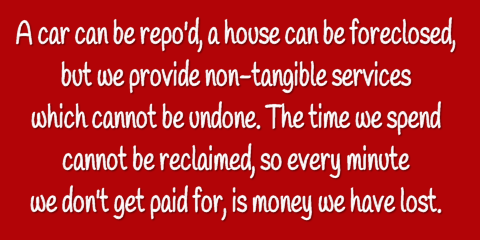If you know and understand healthcare reform in the United States, please raise your hand and shout “I do!”
<<hmm… I hear crickets…>>
That’s right. There is no one who understands it, including Kathleen Sebelius (Secretary of Health and Human Services), or Donald Berwick (nominated to lead CMS). It’s too complex, too long and frankly – just plain daunting.
But we are healthcare professionals. We make our livings understanding healthcare systems. So if we are confused by the complexity of healthcare reform, just imagine how patients and caregivers feel! Add to that all the changes going on at the state level regarding healthcare, including home care and nursing homes, and what do we have?
AN OPPORTUNITY!!
You see – politics, belief systems and confusion should make NO difference in how we will move forward with our work as patient advocates, as healthcare reform – the Affordable Care Act – continues to evolve and be implemented.
The only difference it should make is that there will be new rights to become familiar with, and those rights will be pro-patient for the most part. Our enhanced opportunities will result from implementation and violations of those rights.
Some examples:
> Increased rationing will take place – it’s already on the rise. Overcoming rationing as an obstacle to good care is a place a patient advocate can shine.
> Medical Homes and ACOs (Accountable Care Organizations) will be developed and more of our patients will participate within them. Those relationships present advocates with new markets, perhaps within the Medical Homes or ACOs themselves.
> Pre-existing conditions – patients who have suffered these and will now have access to healthcare will need someone to shepherd them through a system they don’t recognize. Further, insurers will continue to look for ways to cut their costs working with patients who have expensive conditions – more rationing – see above.
> The evolution and implementation of electronic health records will become problematic for those who are used to paperwork – and for some, particularly the elderly who don’t use the Internet – someone who can help them understand and translate will be needed.
> Simple confusion on the part of patients and caregivers will create opportunities for advocates who like to market their services by speaking to groups. Putting together a “What healthcare reform means to you” talk – then using it to springboard the discussion of hiring a professional (you!) can be the key to plenty of new business.
No matter what their politics or personal beliefs, savvy health and patient advocates and navigators find the term “Healthcare Reform” to be music to their entrepreneurial ears.





This isn’t really a response to the posting, but rather a response to an article I read in Medscape Business of Medicine today. Link is http://www.medscape.com/viewarticle/739261'src=mp&spon=34
The article is called “Fighting Back Against Nasty Online Reviews” Docs are mad as hell that people can rate doctors on line and say nasty or negative things about them. (Freedom of Speech?) They totally leave out the potential for false positive remarks as well, which have been documented. But I guess that’s okay.
Trisha is doing a great job teaching folks how to become empowered patients, which is absolutely vital. The number of medical errors and fatalities due to medical negligence is appalling. We have to protect ourselves because no one else will.
I’ve been investigating medical malpractice cases for 20 years and I know for a fact that it is extremely difficult to obtain useful information about physicians. If I wanted to buy a toaster, I could get on line and get hundreds of hits and consumer reports. If I need to have brain surgery, I’m screwed. Just where are folks supposed to find out about the reputations of these docs? We are putting our lives in their hands! The AMA has made sure that the content of the National Practitioner Data Bank is totally inaccessible to the public. I get really tired of doctors playing the victim role. They have every advantage over patients – protection from lawsuits (even those with egregious breaches of the standard of care resulting in death and disability), caps on non-economic lawsuits and the lack of reliable information about doctors. Without transparency about the quality of health care and physicians, the physicians are holding all the cards. A level playing field it is not. Thank you Trisha for helping folks advocate for themselves and others.
Thanks for letting me get that off my chest. I feel better now (sort of)
Kathleen Cunningham
Medical Investigator
Kathleen, I hear what you are saying, and I agree, there are no easy ways to check a doctor’s reputation. I’ve actually written about this extensively at About.com. Here are some links for you:
How to Research a Doctor’s Credentials
How to Uncover a Doctor’s Medical Malpractice Record
You’re right – the AMA will never release the national database. Truth is, it probably would make little difference anyway because the word on the street is that it only contains about 30% of the information it should contain. Hospitals are supposed to use it before they hire, but they rarely do. I’d hate for a patient to try to use it, not realizing how incomplete it was, and count on that database to give them good information.
Thanks for posting.